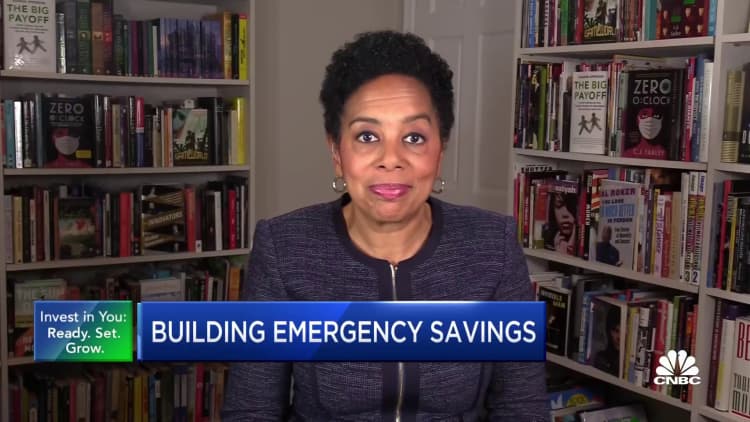Nopphon Pattanasri | Istock | Getty Images
Investors have been able to get the best returns on cash, as the Federal Reserve raised interest rates to bring down the pace of inflation.
Now that the central bank is lowering rates — with a new quarter point rate cut announced by the Fed on Thursday — experts say having money in cash can still be a competitive strategy.
“The best yields, whether we’re looking at high yield savings accounts, money markets or CDs [certificates of deposit] are well ahead of inflation, and that’s likely to continue for a while,” said Greg McBride, chief financial analyst at Bankrate.
“Rates are coming down, but cash is still a pretty good place to be,” he said.
Yet just how much cash to set aside is a question every individual investor needs to determine.
Earlier this year, Callie Cox, chief market strategist at Ritholtz Wealth Management, warned investors may be holding too much cash. That may still be true today, she said Thursday.
“If you’re sitting in cash because the environment doesn’t feel right, then that’s probably not a good reason to be sitting in cash,” Cox said.
Strive for at least a six-month emergency fund
Most financial advisors recommend having cash set aside so that unexpected expenses don’t blow your budget or cause you to rack up credit card debt.
“The rule of thumb is six months of really necessary expenses,” said Natalie Colley, a certified financial planner and partner and senior lead advisor at Francis Financial in New York.
However, having a year’s worth of expenses set aside may also be reasonable, depending on your household budget, she said.
If your savings are not yet at that six-month or one-year mark, start with a goal of setting aside three months’ expenses and then keep building your cash, Colley said.
If you’re behind on emergency savings, you’re not alone.
Almost two-thirds — 62% — of Americans feel behind on emergency savings, a September Bankrate survey found. For many individuals, inflation and having too many expenses has made finding cash to set aside more difficult.
Pay attention to asset allocation
Savers may be at risk of missing out on today’s higher rates if they have not moved their savings to a high-yield online savings or other account paying a more competitive yield.
Yet even if they’re accessing those higher interest rates on cash, investors may still be missing out.
Whether or not that’s true for investors comes down to a person’s time horizon, experts say.
For longer-term goals, stocks pay the best returns on your money, and can best help ensure you have the money you need for your intended milestones.
“Stocks move higher over time,” Cox said. “If you let your emotions get in the way, you could miss out on a rally that’s crucial to you meeting your financial goals.”
More from Personal Finance:
What the Federal Reserve’s latest rate cut means for your money
Is the ‘vibecession’ here to stay? Here’s what experts say
Parents aren’t confident they can teach kids about investing
If you have cash on the sidelines that you want to put into the market, it can make sense to add a fixed portion of that money over time, say every month — a strategy called dollar-cost averaging, Colley said.
Having that fixed schedule can help you avoid trying to time the market, which can be difficult to do effectively, she said. Importantly, investors should try to opt for broadly diversified funds rather than individual stocks.
Having a long-term view can pay off.
If you had invested all of your money before the financial crisis, it would have felt like the worst timing in the entire world, Colley said.
Now, your returns look great, provided you let that money grow for the 15-year run, she said.
Revise your cash strategy as conditions shift
To be sure, there are risks that investors need to keep tabs on when it comes to their cash and other investments.
“Rates are going to come down slower than they went up — much slower,” McBride said.
Consequently, cash investors may enjoy returns that have the potential to outpace inflation for longer, he said.
Still, there are risks for savers to watch.
The policies put in place under the next presidential administration may affect both inflation and interest rates, Cox said.
“If inflation picks back up, it could be hard to earn a beatable yield in cash,” Cox said.
In that case, stocks may provide a better way to beat inflation, though there are no guarantees on prospective returns, she said.
Regardless of whether investors opt for cash or stocks, they need to be asking themselves why they’re making those choices and what they need that money for, she said.
Credit: Source link




